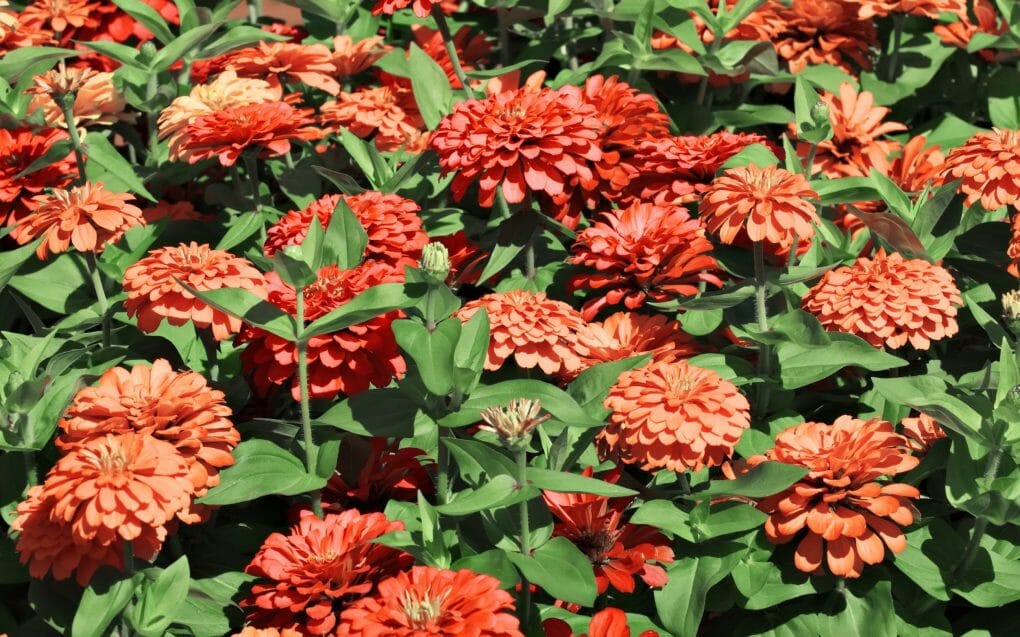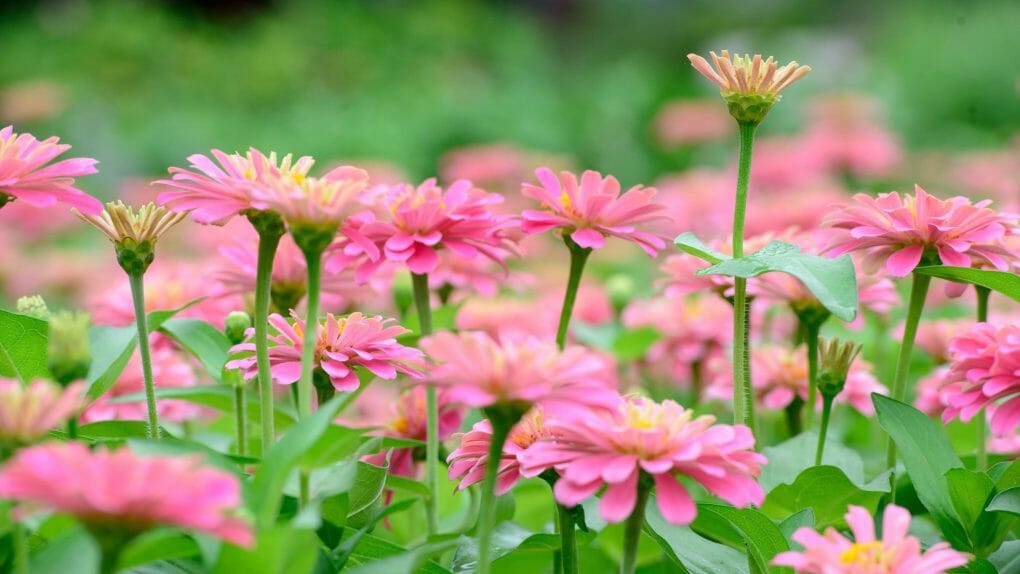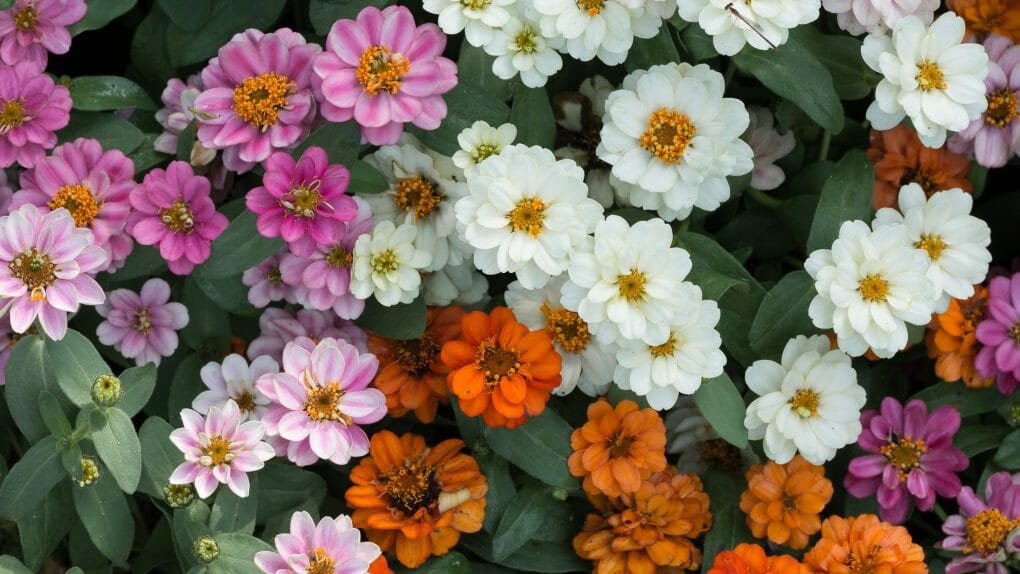Are Zinnias Poisonous? | What You Need to Know

Zinnias are safe plants for both people and animals to eat. Zinnias are used in a lot of different dishes around the world. They are said to taste bitter. You might get sick and throw up if you eat too many Zinnias. They can also cause allergic reactions in some people, like skin irritation if mishandled. So let’s learn more about zinnia and whether they are safe for everyone, including our pets.
Table of Contents
Are Zinnias Safe For Humans?
Zinnias are a popular flower choice for the home and garden, but there is some concern about their safety for humans. They are not typically considered edible plants, but that doesn’t mean they harm humans. Common zinnias (Zinnia elegans) are a relatively safe plant to eat if you know what to look for. Some key signs that tell you whether or not a plant is poisonous include harsh flavors, unusual shapes or colors, and stiff leaves or stem.
The flowers of Zinnias are used in various food preparations around the world. The taste of zinnias is quite bitter, so they are more often used as a pretty decoration than a tasty ingredient.
If you choose to eat zinnias, wash them firsthand with fresh water and salt before cooking them. Be aware that some Daisy family members can cause severe stomach upset if ingested in large quantities.
Zinnia is a well-known flower that can be appreciated in many different contexts. The plant’s flower is the part that may be consumed, and it can be eaten either raw or cooked. Zinnia is typically prepared in various ways, including but not limited to salads, sauces, stir-fries, soups, stews, toppings, etc. While preparing this plant, some degree of caution is warranted. Although it is possible to consume the zinnia entirely, it is recommended that the seeds be removed before utilizing the petals in any culinary preparations.
Is Zinnia Safe for Dogs to Eat?
Zinnias are not considered to be toxic or poisonous to dogs. Don’t be alarmed if you notice that your dog tends to devour the leaves of Zinnia plants. It just so happens that this particular bloom is one of the few safe for dogs to eat. No portion of the plant can be considered dangerous to a dog.
You should have peace of mind knowing that your canine companion is safe in your garden, provided that you use fertilizers and manures that are not toxic to dogs.
Zinnia leaves may be healthy for your dog to eat, but they could become obstructed if they consume excessive amounts. This is very important to remember when raising pups.
Unfortunately, these little critters tend to chew on leaves whenever they have an upset stomach. Consuming leaves causes dogs to throw up and causes their feces to become more solid.
Unfortuitously, a blockage may occur if the amount of zinnia being processed by the system is insufficient to deal with it.

If you have a young dog at home, such as a puppy, you should keep him away from the garden until he is older.
Zinnia can cause obstruction because of the amount consumed and what that consumption may indicate about a more fundamental issue.
If you notice that your dog is constantly munching on leaves, it may indicate that he is suffering from some nutritional deficiency.
He may be hunting for fiber in the leaves since he doesn’t get enough of it in his diet. So ensuring he gets enough fiber will help him limit his behavior in this scenario.
There’s also the possibility that he’s bored and looking for anything to do to keep his mind active. To prevent boredom, ensure he has plenty of opportunities to play and exercise.
Animal lovers should stop underestimating their canine companions’ intelligence. Dogs have a heightened sense of smell and can use it to detect toxins. Having this skill has helped many domestic and wild dogs stay safe. Not all dogs, however, have this ability, and some may continue to eat the flowers in your garden despite your best efforts to teach them otherwise. Even if your dog accidentally eats a few zinnias here and there, you don’t have to worry because this flower is not toxic to canines in small quantities.
Are Zinnias Also Safe for Cats?
The American Society for the Prevention of Cruelty to Animals has determined that zinnias are not poisonous to cats.
The peaceful atmosphere of your home is reflected in the landscaping you’ve created outside.
Unfortunately, the flowers and plants we choose to decorate our homes can harm our feline companions.
Knowing which plants are poisonous to your cat or other cats in the neighborhood is important if you’re a homeowner planning to plant a garden or landscape in your yard.

If you let your cat outside, it’s probably a good idea to keep most of your plants and flowers in hanging pots, where they’ll be more difficult for your cat to get to.
Even though your cat won’t get sick from eating the plant, it’s not great for his digestive system and may give him stomach aches or make him sick.
Though bringing in some zinnias or other plants is a great way to spruce up your home, you may want to consider leaving them outside if you have a cat.
As a precaution, keeping your cat away from flowers is best since not all are safe for consumption.
If your cat can get used to eating zinnias without being discouraged or disciplined, he may not think twice about eating a more dangerous plant.
If your cat ingests a zinnia, taking them to the vet for an examination is still recommended just to be safe. Check in on your cat frequently over the next few days to look for any adverse reactions or other signs of illness.
Is There Anything Special to Keep in Mind About Eating Zinnias?
Although Zinnias pose no threat to human health, precautions exist before eating the flowers you grow in your garden or the park.
You shouldn’t ever eat Zinnias straight from the plant because they might be infested with insects or have other problems that could make you sick if you did. So, for example, if you eat a plant you don’t know is infected with a disease, you might have an upset stomach for a couple of hours.
Therefore, Zinnias are best when cooked before consumption, one more thing to consider before picking your Zinnias is whether or not they have been treated.
While zinnias probably aren’t harmful, you could be harmed by the pesticides or herbicides sprayed on them.
Assume that the soil around the Zinnias has been amended with compost. In that case, you might be risking your health, as compost often contains the feces of various animals harboring diseases or pests that could be transferred to you via the plant.
If you intend to eat your Zinnias, you should find out everything you can about their history with pesticides, fertilizers, other chemicals, and any other treatments they may have received.
Can Zinnia Overconsumption Cause Health Issues?
Overconsumption of the Zinnia plant can cause illness in humans, dogs, cats, and many livestock animals, but it is unlikely to be fatal. However, what constitutes an excessive amount will vary depending on the species and the ages and sizes of the animals or people involved.
It takes more of the Zinnia plant to cause problems for an adult or a large animal than it would for a child or a smaller person, which means that smaller animals and humans can get away with consuming much more of the plant than larger ones.
The unpleasant side effects when too much of the Zinnia plant is consumed at once usually go away on their own after a few hours.
When an animal or person eats too many Zinnias, they may exhibit changes in urination and vomiting patterns, diarrhea, lethargy, and dehydration. After 12 hours, if the symptoms have not improved, medical attention should be sought because severe dehydration can be fatal.
